Crypto Exchange Verification Checker
Click each item below to mark as checked or unchecked. The tool will calculate your risk level based on your selections.
TL;DR
- New Capital crypto exchange shows no verifiable licensing and is linked to the high‑risk lender New Capital Lenders.
- Regulators such as NYDFS and California DFPI have no record of this platform.
- Consumers report deceptive fee terms and unresponsive support via the Better Business Bureau.
- Instead of New Capital, choose regulated exchanges like Bullish, Coinbase, or Kraken.
- Use a simple checklist to verify any crypto exchange before depositing funds.
When you search for New Capital is a purported cryptocurrency exchange that lacks verifiable regulatory credentials and appears closely linked to New Capital Lenders, the results are murky. There’s no public filing, no licensing record, and the only concrete information points to a lending platform that experts label as high‑risk. This review pulls together regulator databases, consumer complaints, and industry best‑practice benchmarks to help you decide whether to stay away or proceed with extreme caution.
What Is New Capital?
The name New Capital Lenders shows up in offshore company registries, but the supposed exchange-often called “New Capital” in forums-has no separate corporate entity listed. In other words, the exchange seems to be a front or an extension of the lending service, which itself has been flagged for lacking any Level1‑3 financial regulator oversight. Without a clear legal structure, users have no recourse if funds disappear.
Regulatory Red Flags and Compliance Gaps
Legitimate crypto platforms usually hold at least one of these credentials:
- Money transmission license from a state regulator.
- BitLicense from the New York Department of Financial Services (NYDFS).
- Registration with the California Department of Financial Protection and Innovation (DFPI) and inclusion on its Crypto Scam Tracker.
Searches of both NYDFS and DFPI databases return zero matches for New Capital. The Better Business Bureau (BBB) lists multiple complaints, noting hidden fees and unfulfilled loan promises. In the absence of any licensing information, the platform fails the most basic compliance test.
Side‑by‑Side: New Capital vs. a Regulated Exchange
| Attribute | New Capital | Bullish |
|---|---|---|
| Regulatory licensing | None verified | BitLicense (NYDFS), Money‑Transmission License (multiple states) |
| Transparency of management | Unclear, no public team | Full executive bios, LinkedIn profiles |
| Annual trading volume (2024) | Not disclosed | $1.5trillion |
| Security certifications | None listed | ISO27001, SOC2 TypeII |
| User complaints (BBB 2023‑2025) | Multiple fraud‑related filings | Zero verified complaints |
The contrast is stark. While Bullish publicly shares its licensing, security audits, and transaction metrics, New Capital offers none of these safety nets. That alone should signal a high‑risk environment.
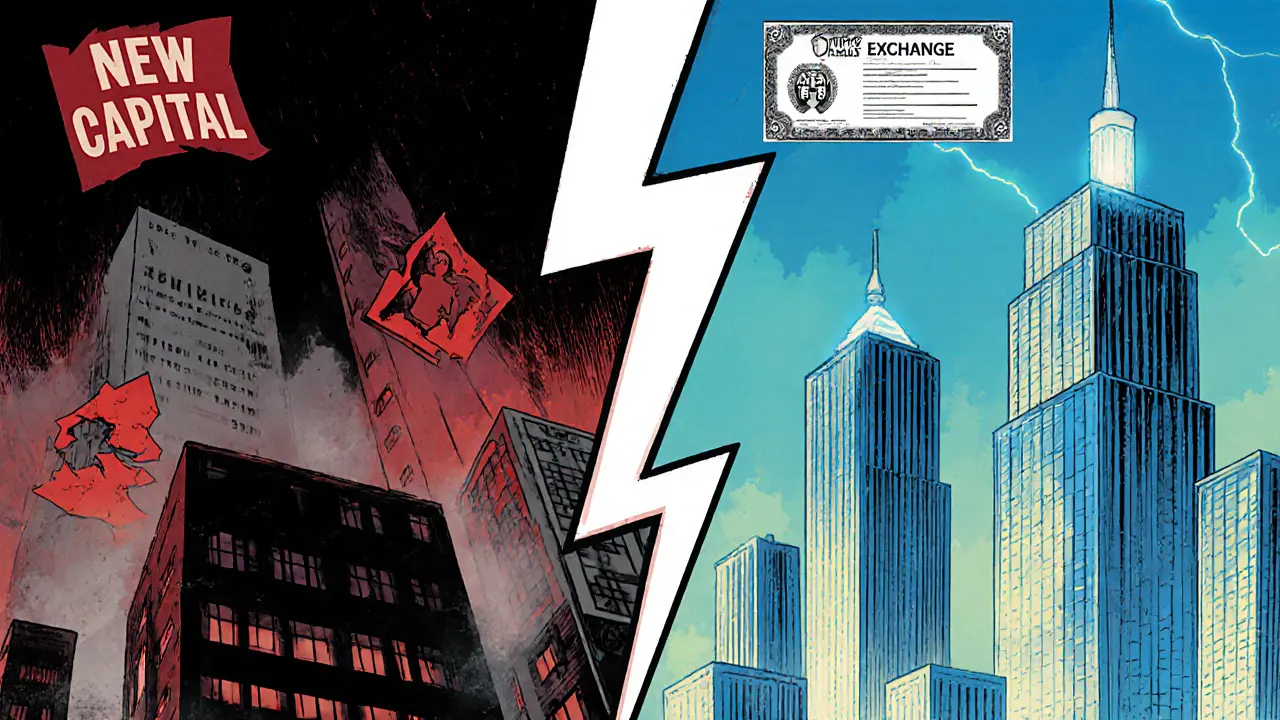
Consumer Experiences and Reported Issues
People who have tried New Capital often cite three recurring problems:
- Hidden or “performance” fees that appear after the first trade.
- Customer support that disappears once a complaint is filed.
- Account freezes with no clear explanation, leaving funds inaccessible.
These complaints line up with the Crypto Scam Tracker data for 2025, which flags platforms that promise unrealistic returns and then go silent. The pattern matches many other fraudulent schemes, not a legitimate exchange.
How to Protect Yourself - Due Diligence Checklist
Before you click “deposit” on any platform, run through this quick list:
- Is the exchange registered with a recognized regulator (e.g., NYDFS, DFPI, FCA, ASIC)?
- Can you locate a verifiable corporate address and leadership team?
- Does the site publish a transparent fee schedule and security audit reports?
- Are there recent, verified user reviews on independent sites like BBB or Trustpilot?
- Does the platform support two‑factor authentication and cold‑storage for assets?
If you answer “no” to any of these, walk away. The cost of a lost few hundred dollars is nothing compared to the time and stress of chasing a recovery.
Safer Alternatives to Consider
Here are a few exchanges that consistently meet the due‑diligence checklist:
- Coinbase - U.S.‑based, NYDFS BitLicense, SEC‑registered, strong insurance fund.
- Kraken - Holds a Money‑Transmission License in over 30 jurisdictions, ISO27001 certified.
- Binance.US - Operates under a state‑level money‑transmitter license, publishes regular security audits.
- Gemini - Regulated by the New York State Department of Financial Services, offers custody insurance.
All of these platforms have clear KYC/AML procedures, public compliance pages, and active support channels.
Quick Reference Checklist for Crypto Exchanges
| Attribute | Why It Matters | Where to Verify |
|---|---|---|
| Regulatory license | Ensures legal oversight and consumer protection | State regulator website, exchange compliance page |
| Management transparency | Helps assess credibility and accountability | Company “About Us”, LinkedIn, corporate filings |
| Security certifications | Shows audit rigor and protection measures | Audit reports, third‑party security firms |
| User complaint history | Signals past misconduct or unresolved issues | BBB, Trustpilot, Reddit, crypto forums |
| Fee structure clarity | Prevents hidden charges that erode profits | Exchange fee schedule page |
Frequently Asked Questions
Is New Capital a legitimate crypto exchange?
No. There is no verifiable licensing, corporate registration, or transparent management for New Capital. Experts classify it as high‑risk and advise against using it.
What red flags should I look for in a crypto platform?
Missing regulatory licenses, opaque ownership, no public security audits, a history of customer complaints, and promises of unusually high returns are primary warning signs.
Can I recover funds lost on New Capital?
Recovery is difficult without a regulated entity to hold them accountable. You can file complaints with local financial authorities, the BBB, and consider legal action, but success is not guaranteed.
How does a regulated exchange protect my assets?
Regulated platforms must follow AML/KYC rules, undergo regular audits, keep a portion of assets in cold storage, and often carry insurance for custodial losses.
Where can I verify an exchange’s license?
Check the official website of the relevant regulator: NYDFS for BitLicense, DFPI for California registrations, FCA for UK firms, ASIC for Australian entities, etc.

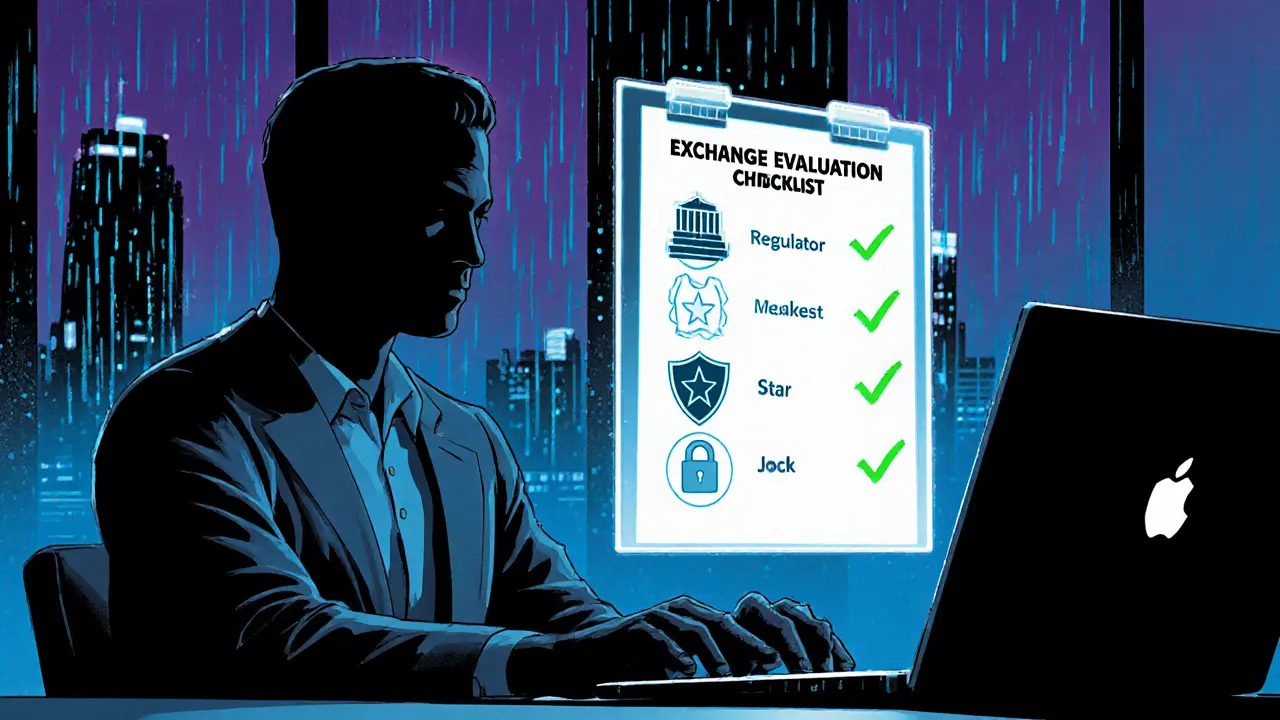
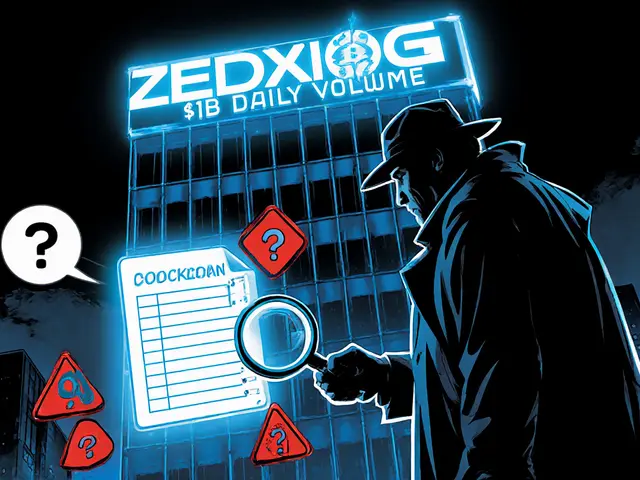
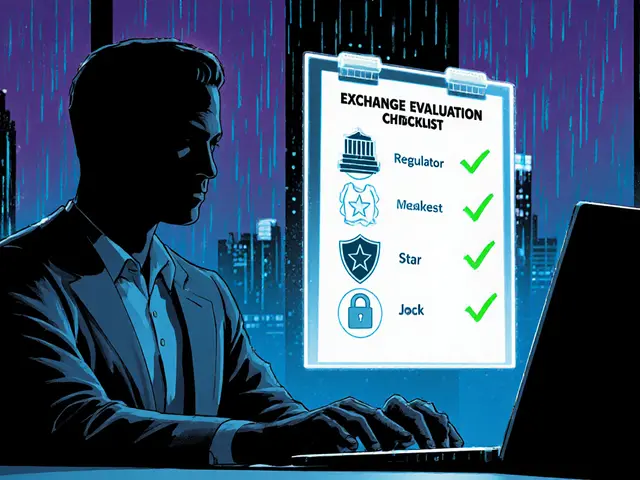
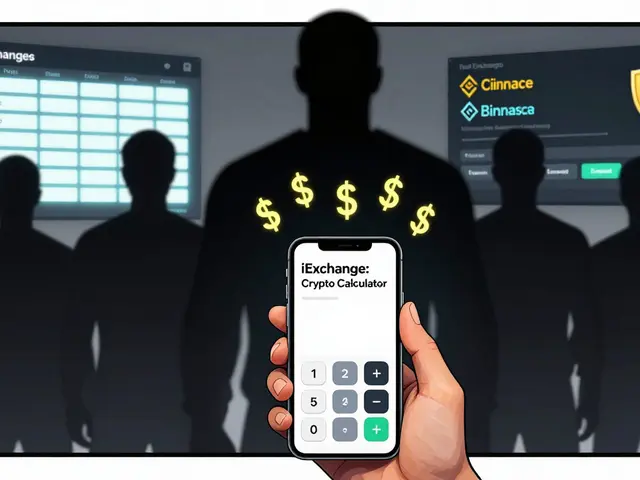
Dale Breithaupt
August 29 2025New Capital looks shiny at first glance, but the devil's in the details.
No regulator shows up in any database, which is the first big red flag.
The corporate address can't be verified and the team is a mystery.
Their fee schedule is hidden behind multiple clicks, making it easy to be surprised later.
Customer support often goes silent after a complaint is filed.
Several users report frozen accounts with no explanation.
The platform appears tied to New Capital Lenders, a known high‑risk entity.
Without a BitLicense or state money‑transmitter license, they're operating in a legal gray zone.
Cold‑storage options are nowhere to be found on their site.
Security audits are missing, so you have no proof of proper safeguards.
Trust is built on transparency, and this exchange offers none.
Compared to regulated giants like Coinbase or Kraken, the gap is massive.
If you value your crypto, treat New Capital as a potential scam.
Stick to platforms that publish audit reports and hold insurance.
Use the checklist in the article to double‑check before you deposit.
Rasean Bryant
September 1 2025Looks like the author did a solid job pulling together the regulator checks.
The checklist is a handy tool for any crypto newcomer.
I appreciate the side‑by‑side table that highlights the licensing gaps.
It's clear why New Capital falls into the high‑risk category.
Stick with the alternatives listed for a safer experience.
Angie Food
September 4 2025i dunno why everyone hypes up thos checklists, its just a litle bit of perf.
new capital might be a big scam but maybe its just an underdog.
who knows lol
Jonathan Tsilimos
September 6 2025Upon rigorous examination of the presented data, it becomes evident that New Capital exhibits a conspicuous deficit in compliance adherence.
The absence of a verifiable regulatory framework, coupled with opaque governance structures, undermines fiduciary confidence.
Consequently, the risk profile escalates to a level warranting immediate avoidance.
jeffrey najar
September 9 2025Hey folks, just wanted to add that the lack of two‑factor authentication on New Capital is a major security hole.
When you’re juggling multiple wallets, every extra layer matters.
I always recommend enabling cold storage wherever possible, and that’s something this platform doesn’t even mention.
If you’ve already deposited there, consider moving your assets to a more reputable exchange asap.
The checklist in the article makes that decision easier.
Rochelle Gamauf
September 12 2025It is profoundly irresponsible for any investor to patronize an entity that fails to disclose basic corporate information.
The author's admonition to avoid New Capital is not merely advisable-it is imperative.
One should demand verifiable licenses as a non‑negotiable prerequisite, a standard clearly absent here.
Jerry Cassandro
September 15 2025Quick heads‑up: the BBB complaints listed aren’t just isolated incidents; they show a pattern of unresponsive support.
If you’re scouring for a reliable platform, start with the exchange’s KYC page and see how transparent they are about fees.
A clear fee schedule usually signals a healthier business model.
Also, check if they publish any third‑party security audit results.
Those details can save you a lot of headaches down the line.
Parker DeWitt
September 18 2025Yo, I get the hype around big US exchanges, but let’s not forget that some foreign platforms deliver solid security too 🌍.
Still, New Capital doesn’t bring anything new to the table, just a bunch of red flags.
If you’re looking for a home‑grown option, stick with the ones that have NYDFS or state licensing.
Otherwise, you’re just gambling with your crypto 😅.
Allie Smith
September 21 2025i think people get so scared of risk that they miss out on chance to learn.
yeah, new capital looks sketchy but maybe it could grow into something legit if they clean up their act.
still, better safe than sorry, right?
just keep an open mind and do your own research.
the world of crypto is full of surprises.
Lexie Ludens
September 24 2025Oh wow, another crypto circus, just what we needed! The article drags on about checklists like it's the ultimate savior, when in reality it's just a Band-Aid over a bleeding wound.
New Capital? More like a nightmare waiting to eat your savings.
If anyone still trusts these shady platforms, they're living in a fantasy.
Wake up, folks!
Aaron Casey
September 26 2025From a risk‑management perspective, the lack of ISO27001 certification alone raises serious concerns.
Moreover, the platform’s inability to demonstrate cold‑storage practices indicates insufficient asset protection.
Investors should prioritize exchanges with robust AML/KYC protocols and documented third‑party audits.
In short, steering clear of New Capital is the prudent choice.
Leah Whitney
September 29 2025Imagine you’re new to crypto and you spot an exchange promising huge returns.
First instinct should be to verify their licensing-if they can’t show it, that’s a red flag.
The article’s checklist makes that step ridiculously easy, so use it every time.
Stay skeptical and protect your hard‑earned money.
Lisa Stark
October 2 2025There's a certain allure to the unknown, yet when financial security is at stake, curiosity must bow to caution.
The review reminds us that transparency is the cornerstone of trust.
Without it, we’re left navigating foggy waters.
Let’s remember that patience often outperforms temptation in the crypto realm.
Logan Cates
October 5 2025Honestly, I think regulators are just a pawn in a bigger game, and platforms like New Capital are being framed.
Maybe they’re the only ones not playing the system, so they get the bad rap.
Who knows, maybe the real risk is the watchdogs, not the exchange.
Shelley Arenson
October 8 2025Great rundown! 👍 The checklist is super useful and the alternatives look solid.
Thanks for the heads‑up! 🌟
Joel Poncz
October 11 2025Totally agree, stay away.
Kris Roberts
October 13 2025Seeing the pattern of complaints, it’s clear that community sentiment is a powerful indicator.
When multiple users report the same issues, it’s a warning sign you can’t ignore.
Trust your gut, but also trust the collective experience.
lalit g
October 16 2025While I understand some may feel drawn to fresh platforms, the evidence presented suggests exercising caution.
It’s always wise to prioritize exchanges with clear regulatory oversight and transparent operations.
Reid Priddy
October 19 2025It’s easy to jump on the bandwagon of mainstream fear-mongering, yet one must consider that every regulator has its own agenda.
Dismissing New Capital outright may be premature without examining the full context of its business model and potential innovations.
Shamalama Dee
October 22 2025Remember, the safest path is to verify every claim the exchange makes, no matter how polished the website looks.
Encourage your friends to use the checklist before they commit any funds.
scott bell
October 25 2025Wow what a rollercoaster crypto world these new platforms bring it's like a wild ride but without safety rails you could end up bruised so yeah check those licenses make sure there's cold storage and audits before you jump in it's better to be safe than sorry